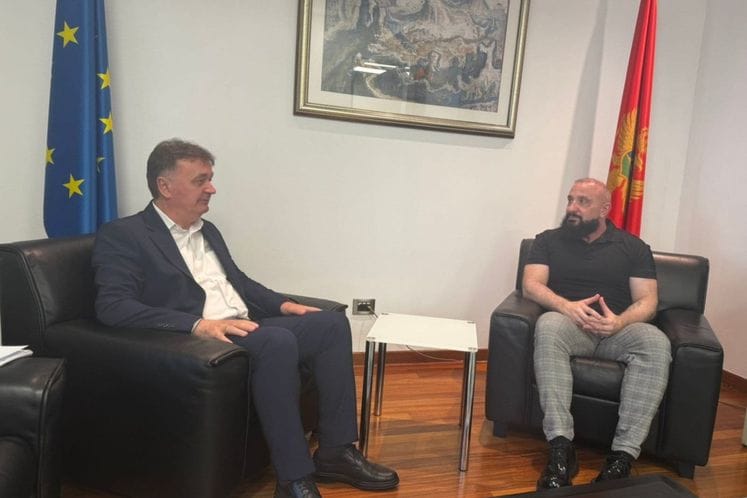- Government of Montenegro
DPM Aleksić continues dialogue with civil society ...
DPM Aleksić continues dialogue with civil society representatives

Deputy Prime Minister for Education, Science and Relations with Religious Communities Budimir Aleksić held a meeting with Aleksandar Saša Zeković, a human rights activist, to discuss the process of dealing with the past. The meeting was part of the Deputy Prime Minister’s ongoing dialogue with civil society and religious communities on topics essential to Montenegro’s European integration and social cohesion.
Both parties acknowledged that the increasingly open discussion about Montenegro’s socialist past often generates ideological tension and political friction. The fact that unidentified or concealed graves still exist on the territory of Montenegro is often used to convey differing ideological messages.
They mutually emphasized the importance of addressing historical issues through an objective and independent approach—free from political influence, revisionism, or imposed reinterpretations of history.
Deputy Prime Minister Aleksić reiterated that he had formally requested from Montenegro’s Supreme State Prosecutor, Milorad Marković, detailed information on the status of all cases and complaints currently being processed by the Special State Prosecutor’s Office related to alleged war crimes committed during and after World War II.
Additionally, DPM Aleksić has initiated a conversation with President of Montenegro Jakov Milatović regarding the State’s and society’s approach toward the remains of innocent civilian victims of World War II and the immediate post-war period.
Mr. Zeković presented key civil society efforts and the challenges they face, particularly highlighting the initiative to designate the Kotor pit—located in the village of Kuline, Municipality of Nikšić, currently situated on private land—as a cultural heritage site due to its historical and memorial importance. He noted that in European Union countries, locations of mass suffering and civilian casualties are often granted protected status as part of their cultural heritage. He also underscored the vital role of civil society in confronting the growing threat of political revisionism.
Both interlocutors reiterated the recent messages and calls from the European Parliament's resolution on Montenegro, which warned of the dangers of historical revisionism being used for political purposes. Such practices, the resolution noted, undermine accountability and deepen social divides. It also urged to open archives related to the former Yugoslav republics and grant access to the files of the former Yugoslav secret service and the Yugoslav People's Army (JNA), to allow for thorough investigation of potential crimes committed during the communist era.
